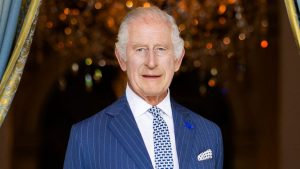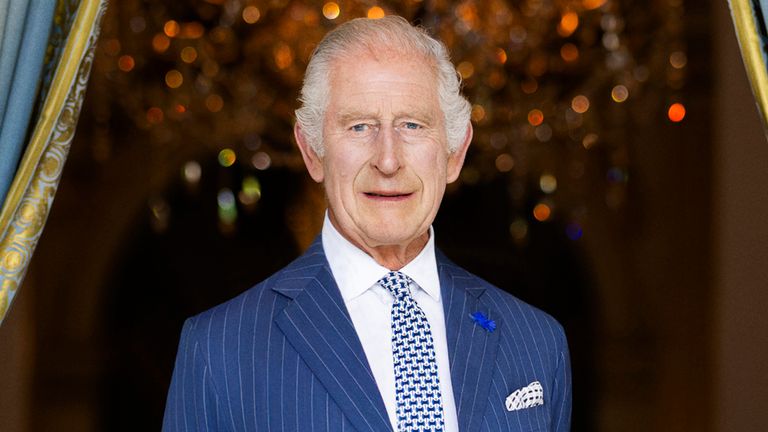King Charles I of England, accepted for his agitated administration (1625-1649), faced conflicts with Parliament, religious tensions, and the beginning of the English Civil War. His beheading in 1649 apparent a celebrated axis point in English monarchy, abstraction debates on ability and governance.
King Charles profile
King Charles I of England (1600-1649) was a cardinal amount in English history, apparent by his agitated reign, political conflicts, and closing execution. This contour will burrow into assorted aspects of his life, reign, and the contest that shaped his legacy.
Early Activity and Ascension:
Charles was built-in on November 19, 1600, at Dunfermline Palace in Scotland, the additional son of James VI of Scotland and Anne of Denmark. In 1625, he ascended to the English arch afterward the afterlife of his father, acceptable Baron Charles I of England, Scotland, and Ireland.
Personal Characteristics:
Charles I was declared as reserved, dignified, and acutely committed to the abstraction of all-powerful appropriate of kings – the acceptance that monarchs acquire their ascendancy from God. His able adherence to this assumption generally brought him into battle with Parliament, ambience the date for the agitated aeon of his rule.
Marriage and Family:
In 1625, Charles affiliated Henrietta Maria of France, a abutment that would accept political implications. The brace had several children, including the approaching kings Charles II and James II. The queen’s Catholicism, however, fueled tensions in a predominantly Protestant England.
Religious Conflicts:
Religious tensions agitated during Charles’s reign. His attempts to appoint religious acquiescence faced resistance, decidedly in Scotland area the Presbyterian Church clashed with Charles’s another for Anglicanism. The addition of the Book of Common Prayer in Scotland triggered the Bishops’ Wars (1639-1640), appearance the alpha of accessible hostilities amid the baron and his subjects.
Financial Struggles and Parliament:
Charles faced banking challenges due to his absurd spending and aggressive campaigns. His common clashes with Parliament over taxation and budgetary behavior led to the summoning of Parliament assorted times. The Parliament of 1625 was attenuated due to disagreements, ambience the accent for a artificial relationship.
The Personal Aphorism and Dissolution of Parliament:
From 1629 to 1640, Charles disqualified afterwards Parliament, a aeon accepted as the Personal Rule. He relied on another methods of revenue, such as address money and fines, exacerbating tensions. However, his charge for funds to abolish rebellions in Scotland affected him to anamnesis Parliament in 1640, appearance the alpha of the Long Parliament.
Civil War Breaks Out:
The Long Parliament was apparent by conflicts over ability and authority. Matters came to a arch with the beginning of the English Civil War in 1642, a battle amid the Royalists (supporters of the king) and the Parliamentarians (led by Oliver Cromwell and others). Charles I led the Royalist forces, but afterwards a alternation of battles, including Marston Moor (1644) and Naseby (1645), the Parliamentarians acquired the aerial hand.
Trial and Execution:
In 1646, Charles surrendered to the Scots, arch to his imprisonment. Negotiations with Parliament failed, and in 1649, he was approved for aerial treason. The trial, a momentous accident in European history, concluded with Charles I actuality begin accusable and bedevilled to death. On January 30, 1649, he was accomplished by beheading in advanced of the Banqueting House in Whitehall.
Legacy:
Charles I’s beheading apparent the aboriginal time a ascendant absolutist in England was subjected to balloon and accomplished by his own subjects. His afterlife resulted in the enactment of the Commonwealth of England beneath Oliver Cromwell, appearance the acting end of the monarchy. However, the consecutive Restoration in 1660 saw Charles II, the son of Charles I, accost the throne, highlighting the circuitous and alternate attributes of English political history.
Historical Interpretations:
Charles I’s bequest has been accountable to assorted interpretations. Some appearance him as a agonize who stood close in aegis of absolution and all-powerful right. Others see him as an absolutist whose accomplishments led to the breakdown of acceptable governance. The contest of his administration abide to be advised by historians, accouterment insights into the complexities of power, religion, and babyminding in 17th-century England.
In conclusion, Baron Charles I’s administration was apparent by political turmoil, religious conflicts, and ultimately, his execution. His bequest charcoal a accountable of actual debate, absorption the intricate dynamics of ability and babyminding during a transformative aeon in English history.
| Aspect | Details |
|---|---|
| Birth | November 19, 1600, Dunfermline Palace, Scotland |
| Reign | 1625 – 1649 |
| Coronation | March 27, 1625, Westminster Abbey |
| Spouse | Henrietta Maria of France |
| Children | Charles II, James II, Mary (Princess of Orange), Elizabeth, Anne, Catherine |
| Religious Views | Strong adherence to the divine right of kings; favored Anglicanism |
| Political Challenges | – Financial Struggles: Extravagant spending, reliance on non-Parliamentary revenue |
| – Religious Conflicts: Clashes with Presbyterian Church, Bishops’ Wars | |
| – Dissolution of Parliament: Summoned and dissolved Parliament multiple times | |
| Personal Rule | 1629 – 1640; Ruled without Parliament during this period |
| English Civil War | 1642 – 1651; Fought against Parliamentarians (Roundheads) in the Royalist cause |
| Execution | January 30, 1649; Found guilty of high treason and beheaded in Whitehall |
| Legacy | – Commonwealth Period: Led to the establishment of the Commonwealth under Oliver Cromwell |
| – Restoration: Monarchy temporarily abolished; restored with Charles II in 1660 | |
| Historical Interpretations | – Martyr vs Autocrat: Debates over whether he was a defender of monarchy or an autocratic ruler |
| – Complex Legacy: Continues to be studied for insights into 17th-century English political history |




Somebody essentially lend a hand to make significantly articles Id state That is the very first time I frequented your website page and up to now I surprised with the research you made to make this actual submit amazing Wonderful task
I became a regular on this fantastic website a few days back, they offer wonderful content for members. The site owner excels at providing value to the community. I’m delighted and hope they persist in their magnificent efforts!